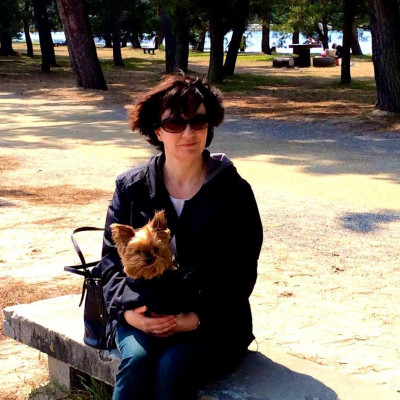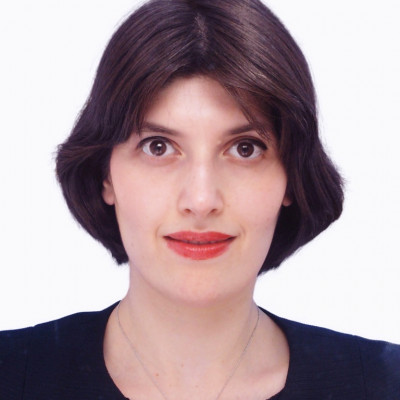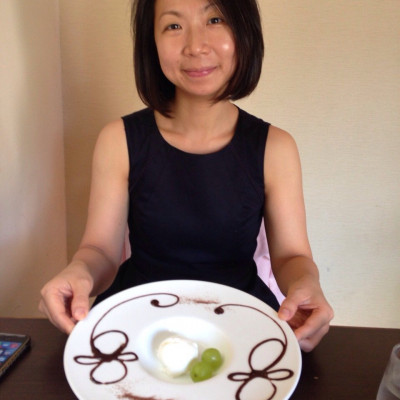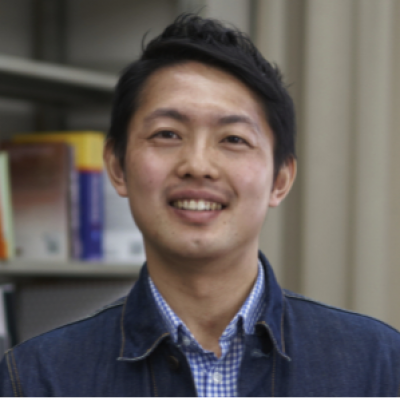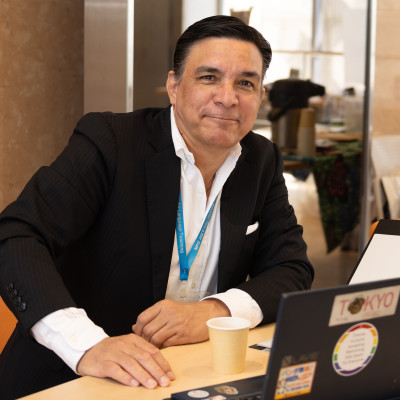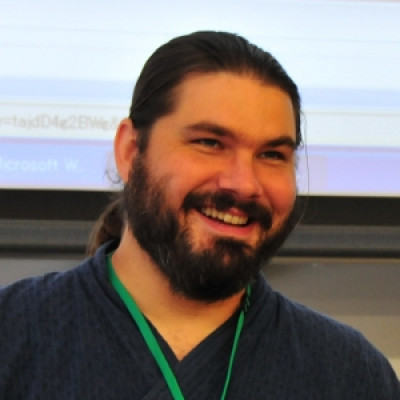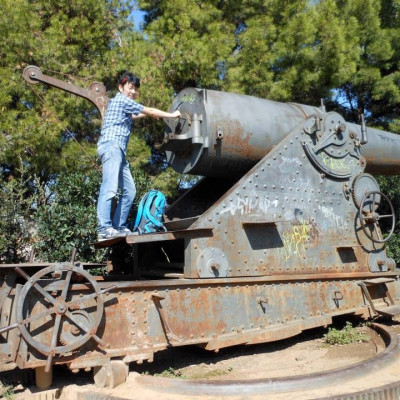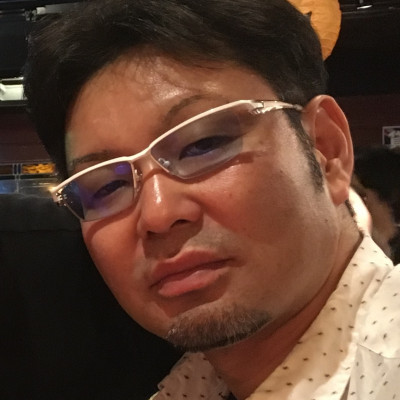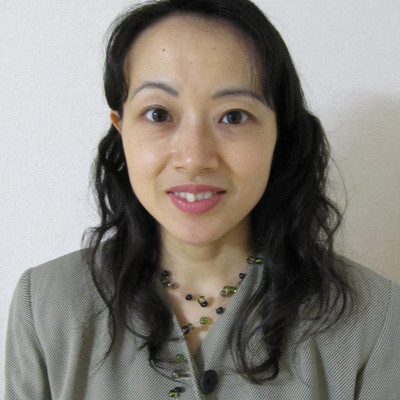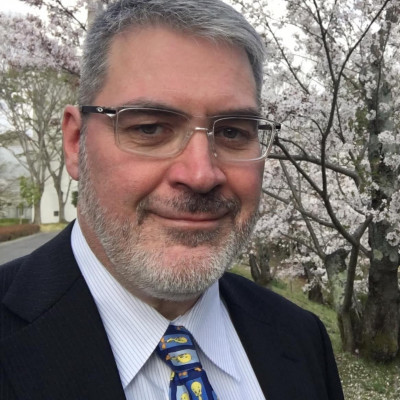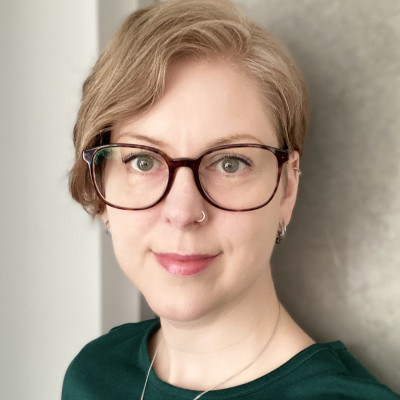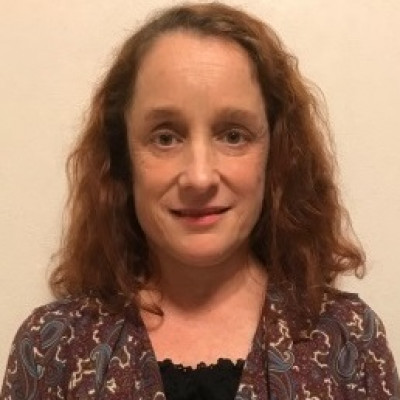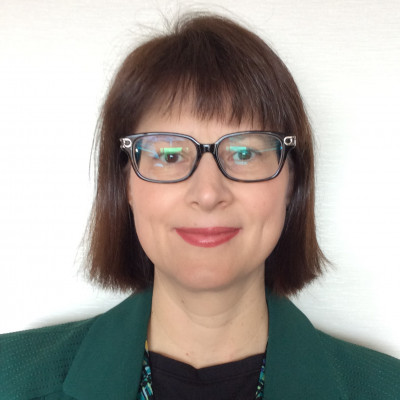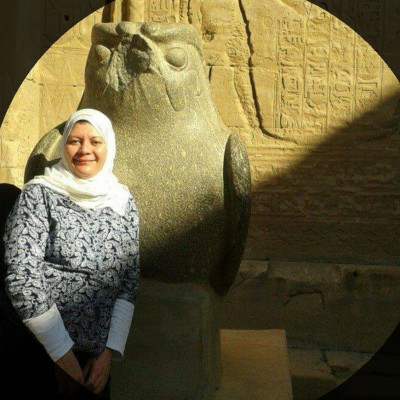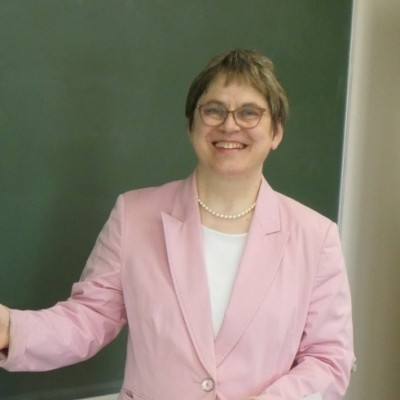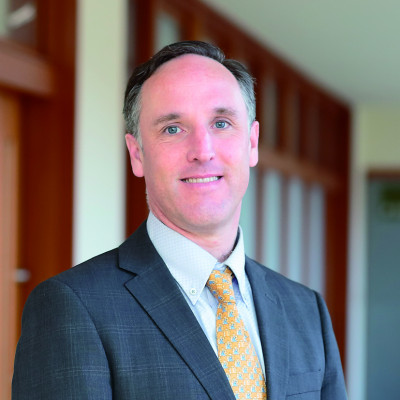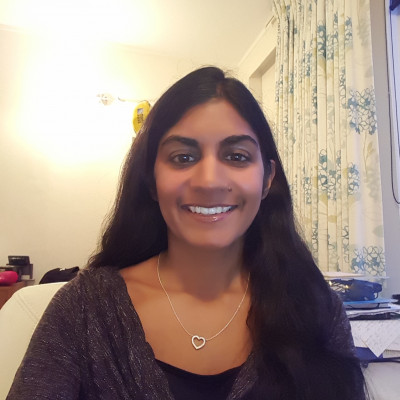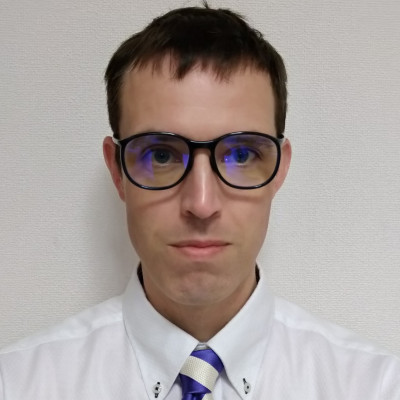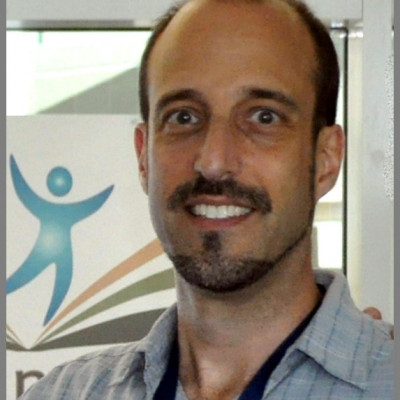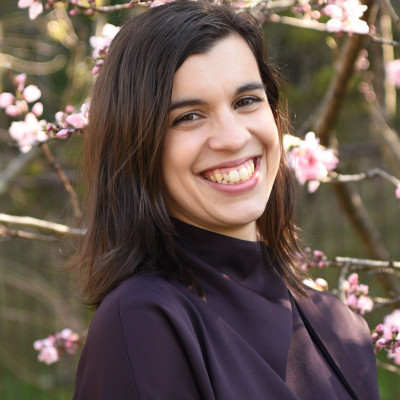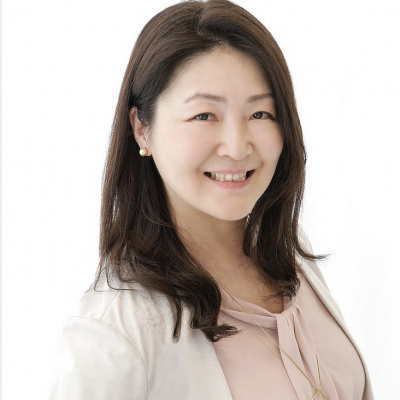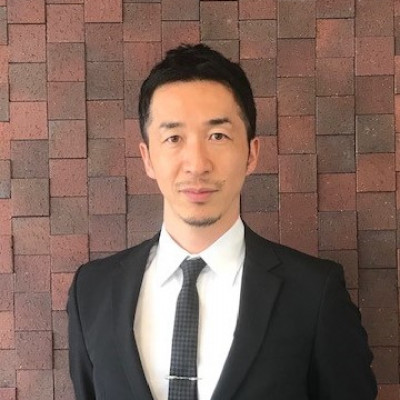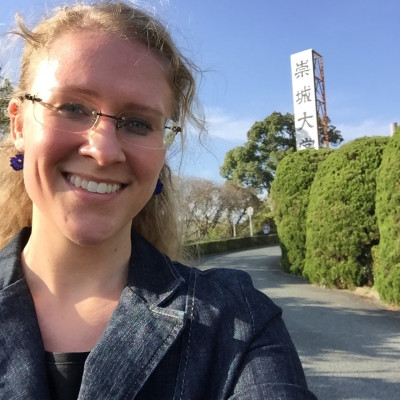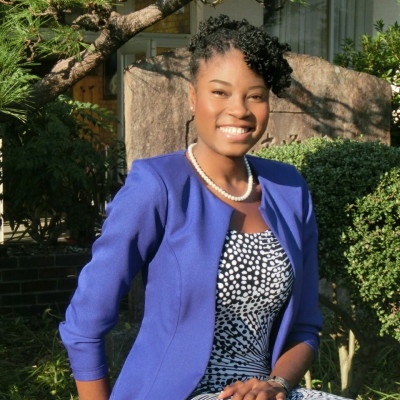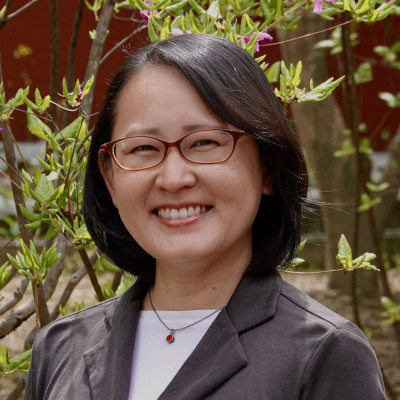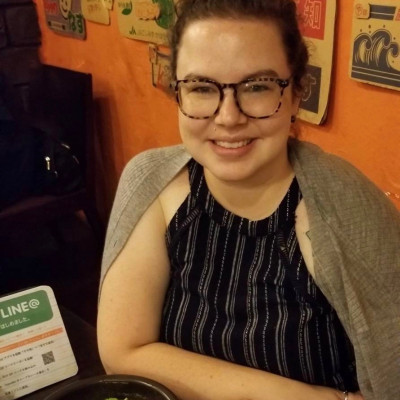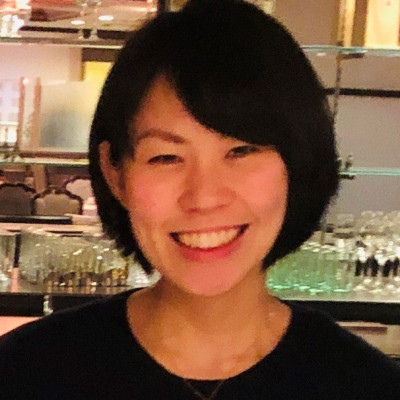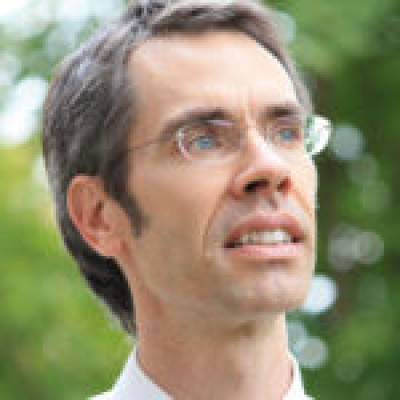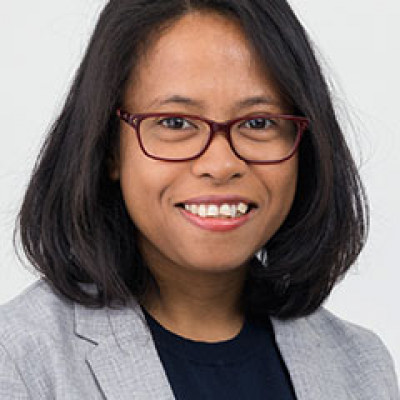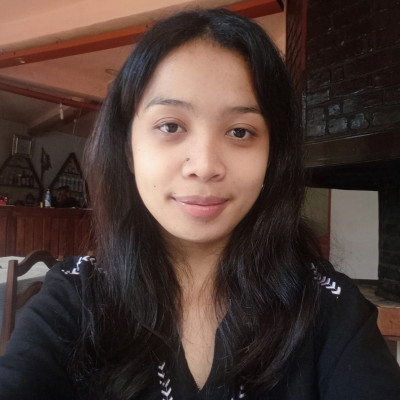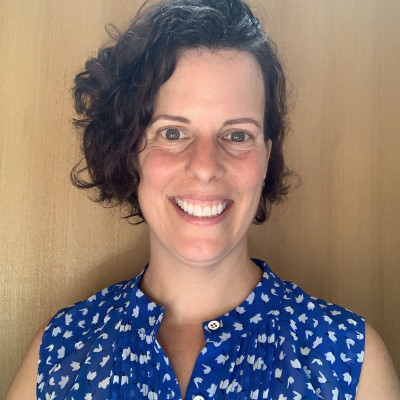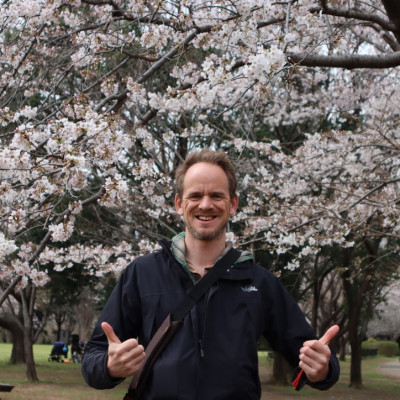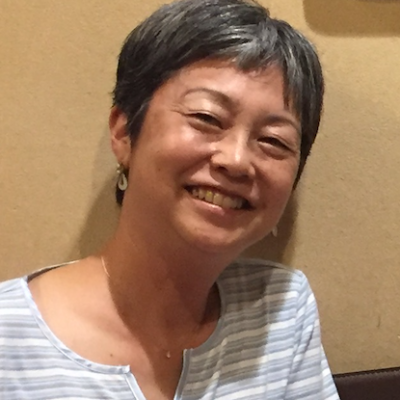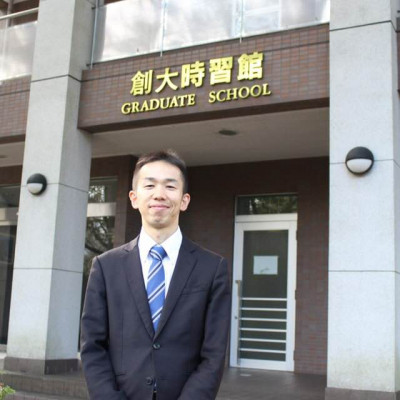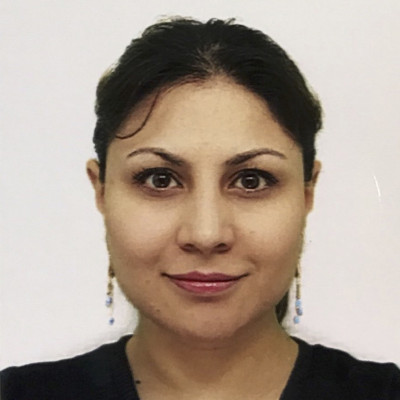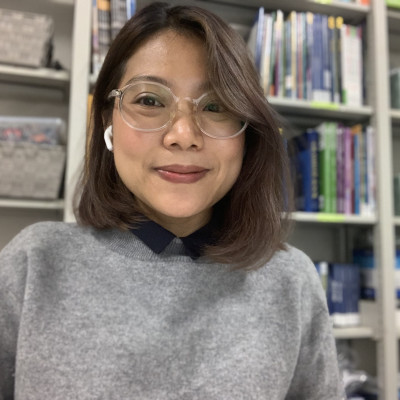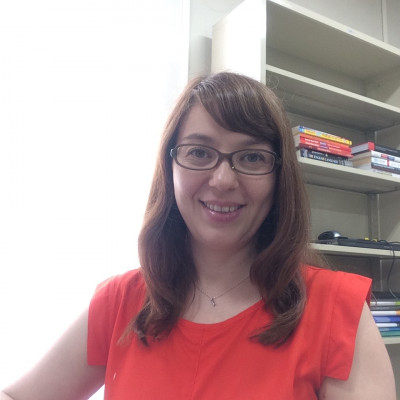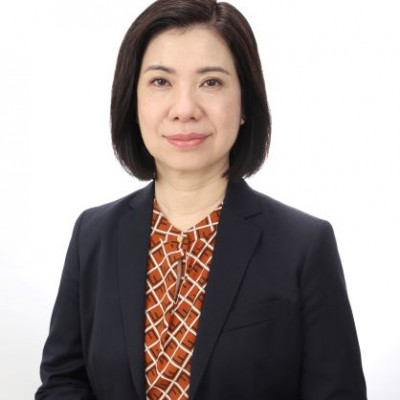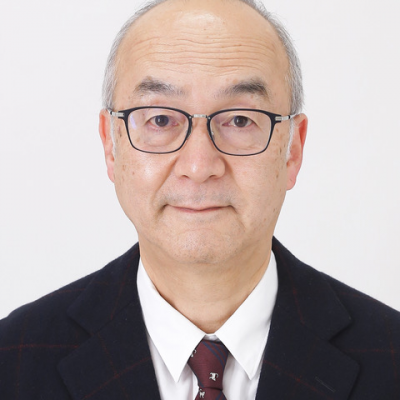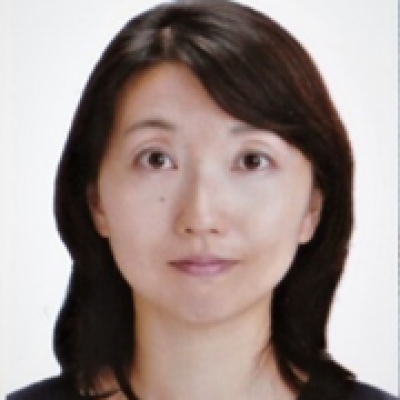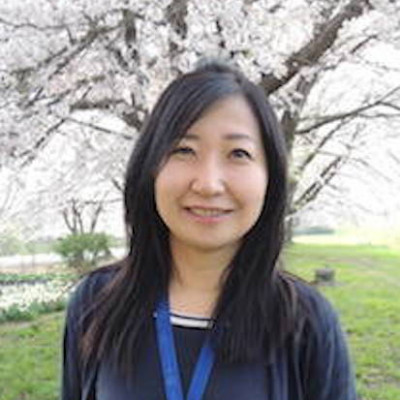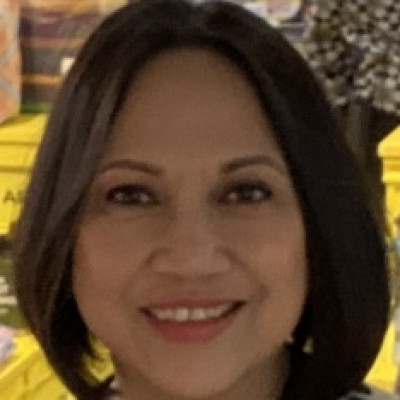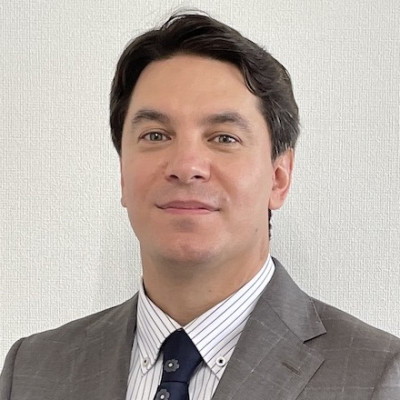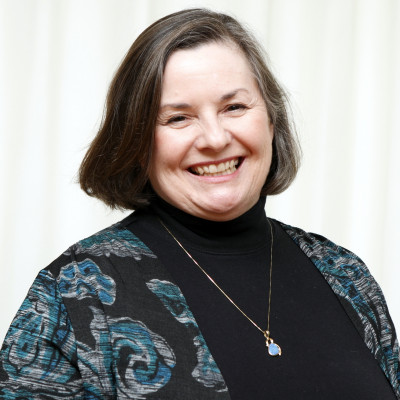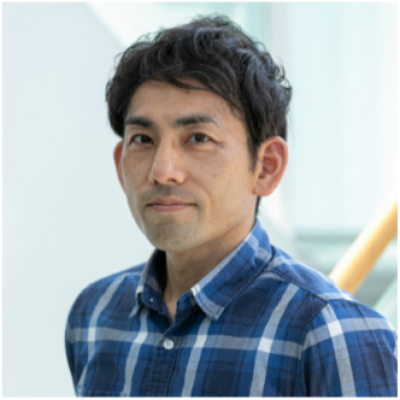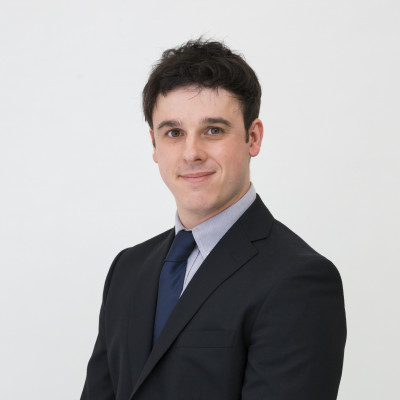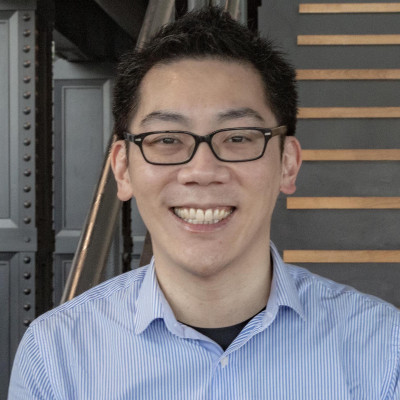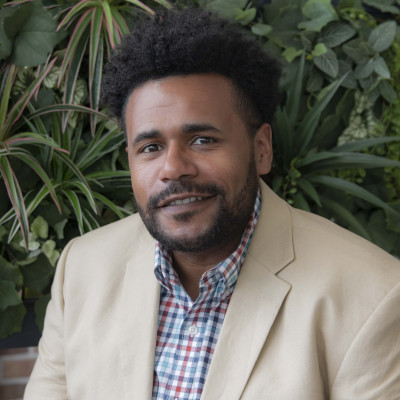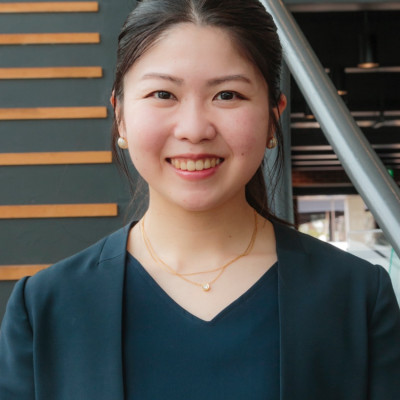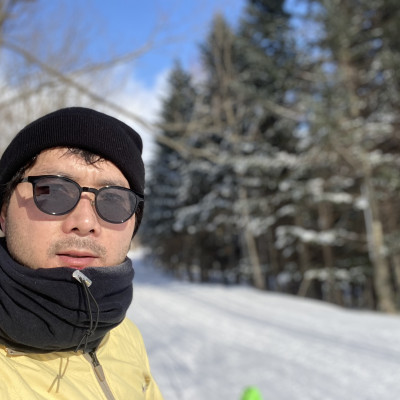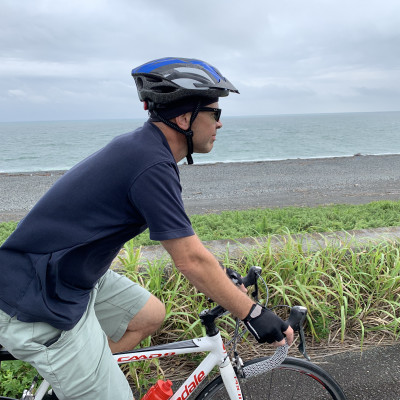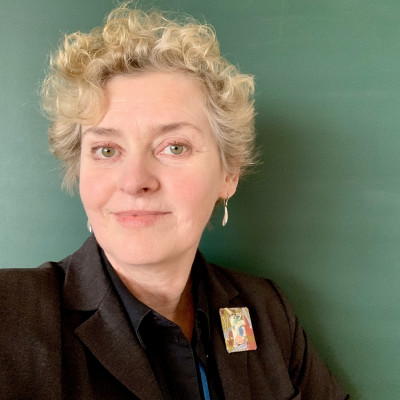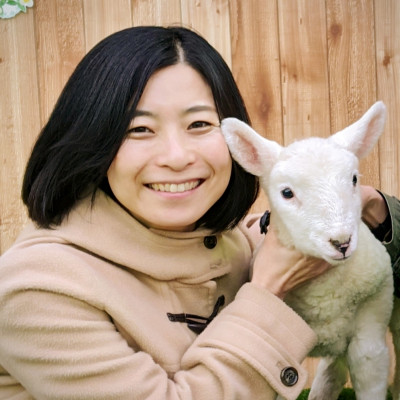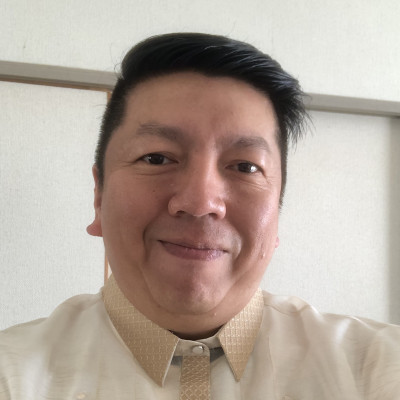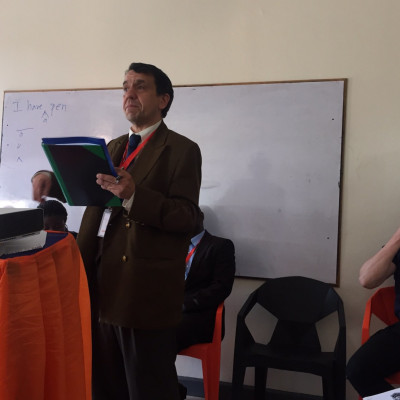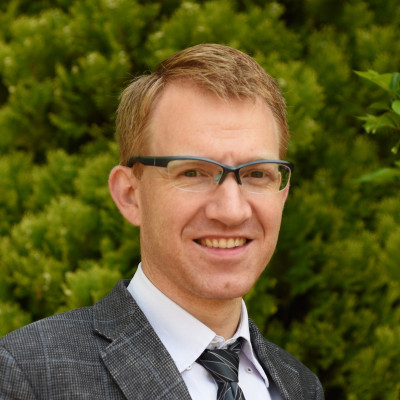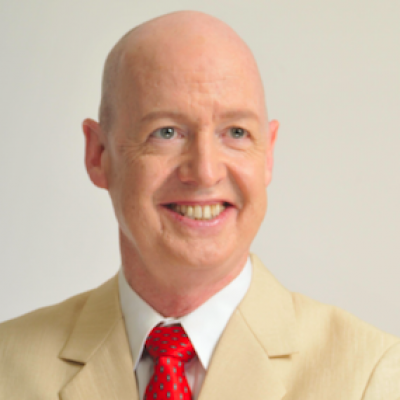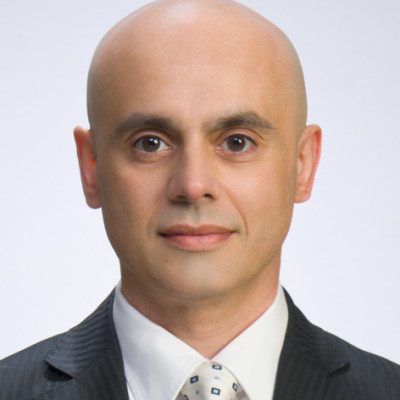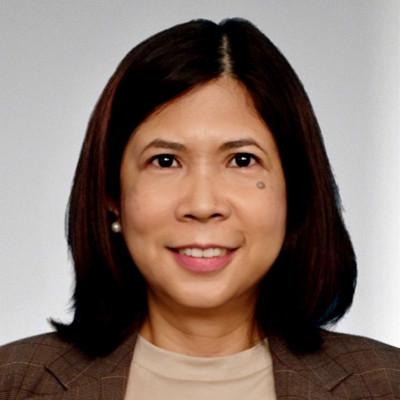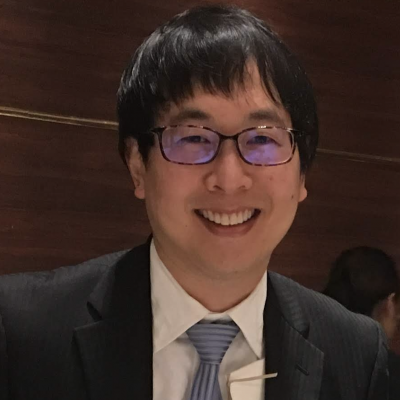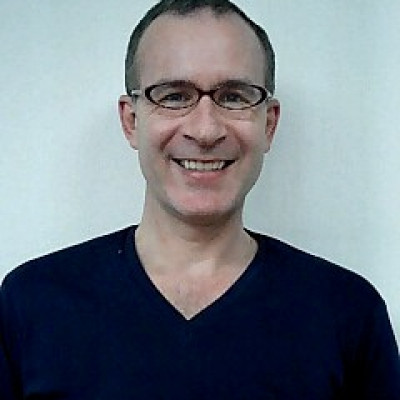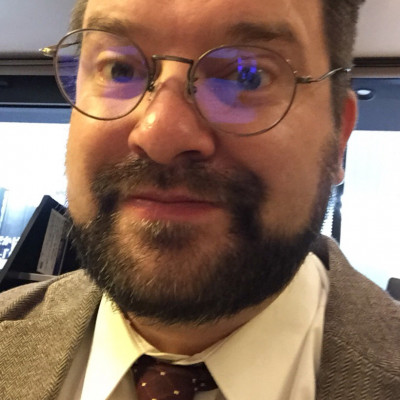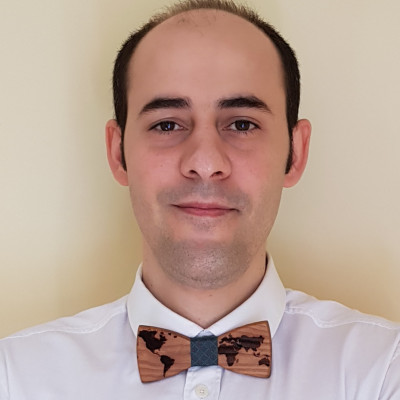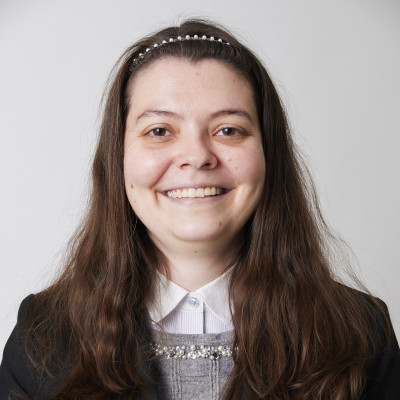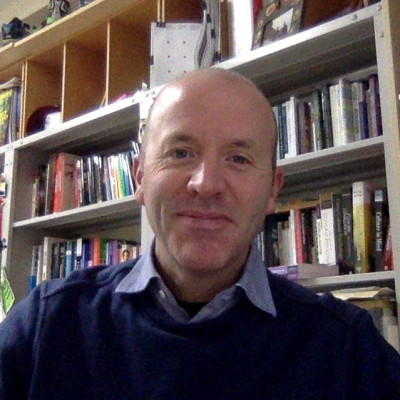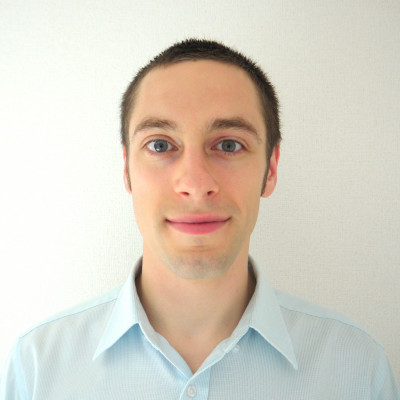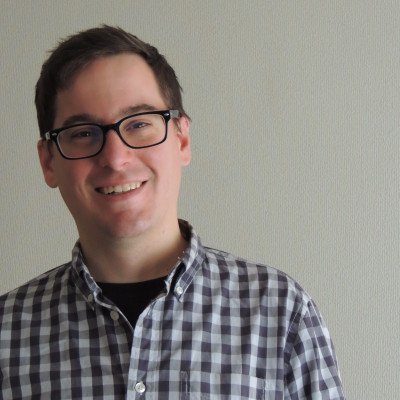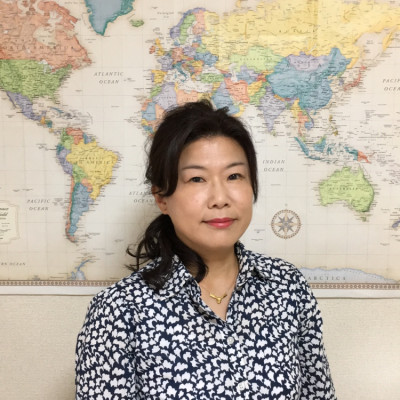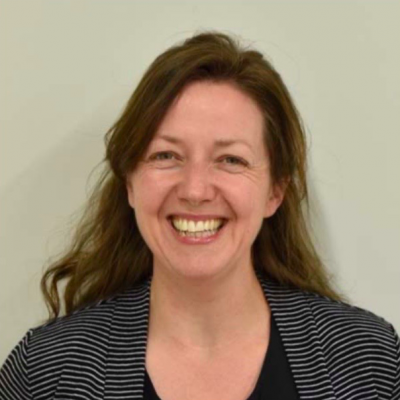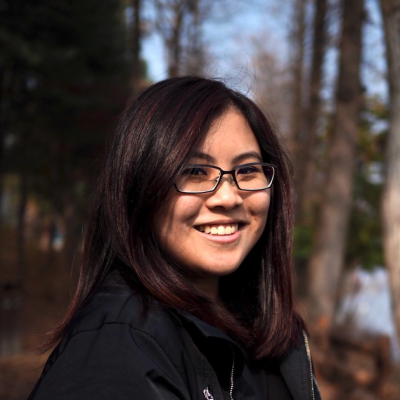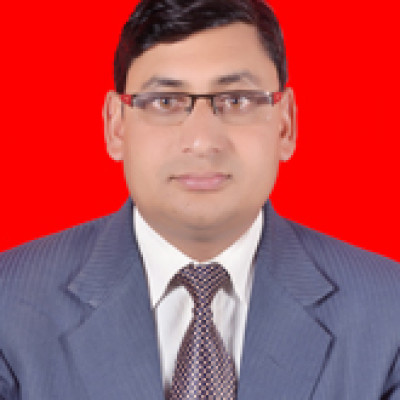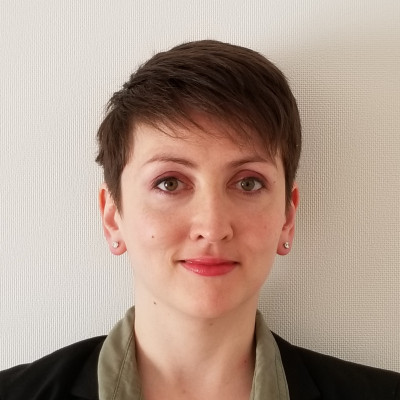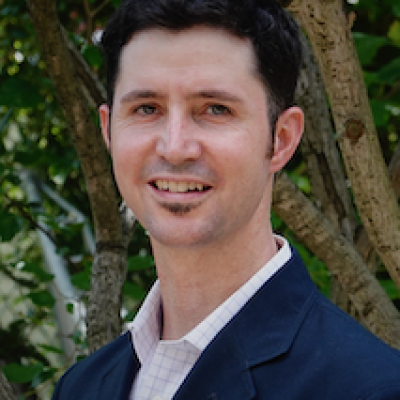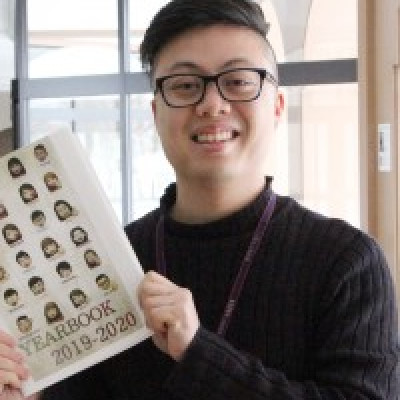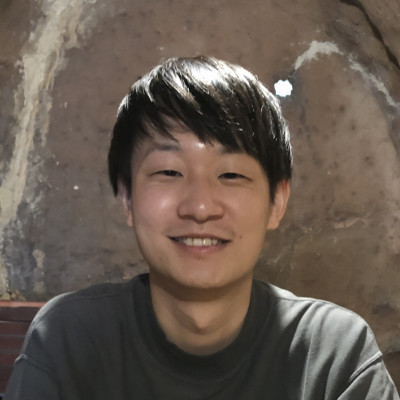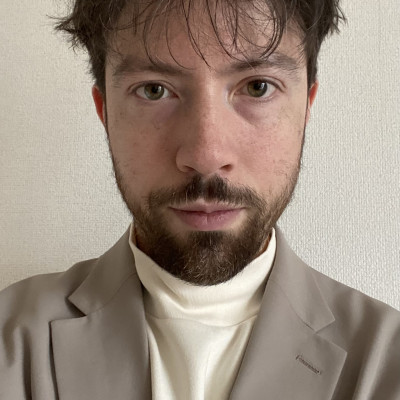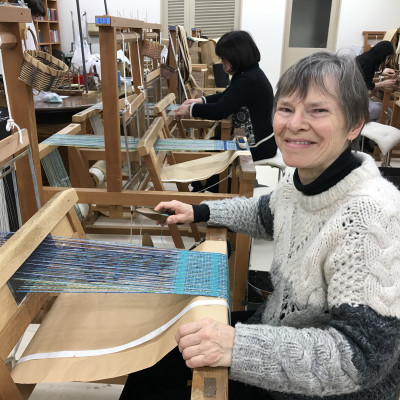Schedule Go Compact (displays all)
You can use Quick Lookup to quickly find sessions. But best is to use the LIVE SCHEDULE during the conference itself.
Please note
This search only includes sessions starting on 10th July [Asia/Tokyo]. It does not include asynchronous sessions.
Online Lounge #3291
Meet online participants and prepare for the day.
Reimagining Technology-Enhanced Language Learning: Looking Back, Moving Forward #2659
Technology enhanced language learning (TELL) has evolved considerably since its early days, and immersive technologies such as augmented reality and virtual reality will significantly transform the way we approach learning moving forward. It is therefore important for academics and professionals to know about immersive learning and how it can help reimagine the future of TELL. In fact, immersive technologies have made their way into different sectors and industries such as entertainment, arts, manufacturing, marketing, healthcare, and education. Aside from their use in content knowledge acquisition, immersive technologies provide affordances that are highly valuable for learning such as sense of (co-)presence, embodied interaction and communication, and emotional engagement. However, their use is still limited in language education due to reasons such as low access to resources and unfamiliarity of teachers with immersive learning design. In this talk, I will introduce immersive technologies and argue that these technologies will immensely change the way we interact with digital media in future iterations of the Web. In the rest of my talk, I will connect that introduction to recent trends of research and practice in immersive learning and the affordances and challenges of these technologies in creating novel learning experiences. I will also touch upon the impact of the COVID-19 pandemic on development and implementation of immersive technologies in learning contexts.
Effects of weekly explicit grammar instruction on L2 speaking development #2825
This presentation talks about the effects of giving weekly explicit grammar instruction to learners to examine changes in their speaking output over time. Task-based language teaching (TBLT) has flourished in the past several decades as an effective approach for developing speaking proficiency. While TBLT research has recognized the importance of integrating form-focused instruction (FFI) into meaningful tasks (Long, 2015), the effects of grammar instruction on speaking proficiency development, especially over time, remain unclear. Three first-year Japanese university students participated in this classroom-based study for seven weeks. Pretest and posttest were conducted one week before and one week after a seven-week intervention period. During intervention, all three participants received weekly grammar instruction given by the presenter. Each week, they were given 10 minutes of grammar instruction on past tense forms before they narrated a different four-picture cartoon in English (equivalent difficulty level). Narrations produced by the participants were recorded, transcribed and analyzed. Trajectory changes in their speaking output were qualitatively analyzed in terms of complexity, accuracy, and fluency. This presentation concludes with some pedagogical implications for integrating grammar instruction into communicative language teaching classrooms.
Conference proposal writing and reviewing: Constructive feedback #3099
Presenting ideas to fellow teachers and researchers is an essential part of professional development. Concisely describing a presentation in one or two hundred words of text is a challenge. Conference organisers must also put together teams of reviewers to assess the quality of each submission, and ideally write feedback that will be useful for authors to revise their submissions, whether to raise the standards of the current conference or to help authors when they apply to a later conference. This session is intended for anyone thinking about writing a presentation abstract, joining a reviewing team for a conference, or continuing to review and give feedback on submissions. This presentation will first consider the essential form and component of a presentation submission: who it relates to, what it is about, when and where it takes place, and why it is important. Then we will look at how reviewers can write feedback in a tone that is helpful without being patronising, and critical without being offensive. What are the rules concerning abstract writing and when do rules become guidelines? Do abstracts need references (Gough & Taylor, 2018)? Should abstracts include questions? (194 words including these ones!)
Pragmatics: What we’ve done—What we will do #2862
In this Forum, three Pragmatics SIG members will take turns sharing how and why they became interested in the field and what specific areas they have worked on. They will then use their creative imagination to brainstorm where they hope the field of pragmatics—and in particular, our SIG--will go in the future. The panelists include Jim Ronald, who will speak about his constant efforts to develop and promote pragmatic activities for the second language classroom. Next, Yosuke Ogawa will talk about using an interdisciplinary approach and the synthesis of approaches, i.e., an examination of conversation analysis, discourse analysis and sociolinguistic research. Then, Benio Suzuki will share his practical work on requests and refusals, and his research on interactional competence. Noriko Ishihara, another expert and a well-known professor of pragmatics, will guide the overall discussion. The main goal is to share with the audience the wide range of topics where pragmatics is relevant and engage everyone in a discussion about future pragmatic directions.
Case studies: An imaginative learning approach with lifelong applications #2877
Formal education systems have faced the expectation of developing the whole learner and more recent calls are for developing lifelong learners. In the 100 years since Harvard Business School pioneered the case study approach, cases have become recognized as pedagogical techniques for experiential learning to cultivate the capacity for critical analysis, judgment, problem solving, and action. Experiential learning (Silberman, 2007) affords students in higher education with opportunities to meet course aims by applying knowledge and demonstrating skills. In addition to engaged language in use through preparation for class discussions consolidating both life and academic experience, case work supports students in building long-lasting abilities that transfer to situations beyond the classroom. This teaching practice session introduces the merits of case studies with examples used in discussion and business English courses sampled from various ELT materials and supplementary resources. The presentation also highlights seven meta-skills prompted through case study learning to better prepare students for work and foster an interest in ongoing learning after university. Participants will consider how they might incorporate cases studies in their context. Following a brief overview of constructivist pedagogy, this session will interest teachers looking for practical means to meet active learning demands and support learner engagement.
GALE SIG Forum #2648
This is the Forum of the gender awareness in language education (GALE) SIG. GALE’s mission is to research gender and its implications for language learning, teaching, and training; to improve pedagogical practices, develop language teaching material; to raise awareness of workplace and human rights issues related to gender for language professionals; and to increase networking opportunities among language professionals interested in teaching, researching, and/or discussing issues related to gender and language education. Forum speakers represent a wide range of research and perspectives on gender awareness in language education within the SIG and the organization of JALT as a whole. Presenters will engage in discussion of the importance of gender issues within the language teaching profession.
Educators in Training Forum #2649
The Graduate Student Subcommittee (GSS) is for JALT members who currently study or are thinking about studying at university, with a focus on those undertaking graduate-level studies. In this presentation, we will discuss the subcommittee’s activities since its creation at the Executive Board Meeting in June, 2021. These activities include interviewing leaders within the JALT community, and presenting during the JALT international conference 2021. We are a new, small subcommittee, so we are looking for like-minded students to join us in creating a space for students within JALT. While many of our interests and concerns overlap with the wider JALT community, we aim to create a space for students to come together to share ideas and help support each other through the last words of our dissertations or thesis defenses. We welcome anyone to join us to share ideas about how this subcommittee can help the students within JALT, but we especially welcome current graduate students to join us to share their ideas and concerns and network with other students.
EFL Games with CALL #2654
The CALL SIG Forum this year will be discussing the topics of games, play, and language learning with technology. Speakers in the forum will include: Brian Teaman, Hanaa Khamis, and Brian Gallagher All conference participants are welcome to join the forum and engage with the speakers.
This forum will be closely linked to the JALTCALL 2022 Conference theme of Gameplay and Technology in Langauge Learning. JALTCALL 2022: PLAYFUL CALL Exploring the Intersection of Games and Technology in Language Education Taking inspiration from Zimmerman’s manifesto which proposed the 21st century is the “ludic century,” the focus of the 2022 conference is “Playful CALL” which we interpret as the exploration of play, games, and other ludic approaches to CALL research and practice. https://jaltcall2022.edzil.la/
Using the CEFR-focused Action Research Model - Reflections on two years of research #2655
The JALT CEFR & LP SIG is supporting teacher-researchers through a collaborative Kaken research project entitled “Language Education reform using action research: Putting CEFR’s educational principles into practice” since 2020. During the Forum, project participants will reflect on their research projects they conducted so far using the CEFR-focused Action Research Model (CARM) developed by the SIG. The SIG Forum will be an opportunity to discuss examples from researchers’ intermediate outcomes in relation to the CARM model (= AR / CEFR aspects) as good model case studies. Forum participants are encouraged to engage and reflect on their current practice and consider how the CEFR and CARM might be utilized in their own contexts. The Forum will conclude with a discussion of the strengths and weaknesses of the CARM model and the goals for the final year of the KAKEN project. The Forum is open to everyone interested in intending to conduct research in the field of foreign language teaching and learning especially using Action Research and/or the CEFR – CEFR CV as a tool. The Forum intends to foster sharing and peer-learning.
Listening SIG Showcase 2022 #2661
The Listening SIG showcase will be divided into two parts. The first part will include a lively discussion on listening: Extensive Listening (EL) “vs” Extensive Reading (ER). Brett Milliner and Paul Goldberg will lead the discussion to share their own experiences, stories, and accounts of recent developments in the field of second language listening. The discussion will then open as a forum to invite contributions from attendees to discuss their own experiences and seek ideas to address listening difficulties when teaching. The second part will consist of a listening workshop. Todd Beuckens will present an interactive workshop to show how some free online tools can be used to make listening tasks. There will also be an opportunity to ask about resources and task ideas in the Q&A session. We will end with a brief presentation to outline our recent communication, events, and publication initiatives. There will also be an opportunity for members and potential members to give feedback and share ideas on what they would like to see from the Listening SIG.
Fostering Intercultural Competence in Foreign Language Classrooms #2962
The internationalisation of universities worldwide has grown parallel to an increasing demand for interculturally competent graduates, capable of working effectively across cultures and of successfully addressing local and global challenges. Previous studies in the fields of intercultural competence in higher education have focused mainly on the impact of study abroad programmes. Yet, as we face a global pandemic and restricted mobility, the need to research the development of affective, cognitive, and behavioural intercultural dimensions on domestic campuses has become apparent. Based on Deardorff’s Pyramid Model of Intercultural Competence (2006) and the hypothesis that intercultural attitudes are at the base of intercultural competence development, this presentation will discuss results from a one-year longitudinal study aimed at investigating the factors affecting the development of these attitudes in largely "monocultural", EFL classrooms in Japan. Particular attention will be given to the development of core intercultural competence components, namely curiosity, openness, and respect (Deardorff, 2006), as well as components identified as being essential to globally competent workers, namely cultural self-awareness and an awareness of local and global issues (Hunter, 2004). The presenter will discuss results of pre-, mid-, and post-intervention surveys, student assignments, and reflections collected from 205 university students of English as a foreign language. Findings will encourage discussion among foreign language educators on how to better foster an interculturally competent workforce through foreign language education on domestic campuses.
Strategies for Promoting Critical Thinking in University Classes #2878
This workshop will outline practical approaches instructors can make use of in the classroom to promote the development of critical thinking skills in second language classes. The development of critical thinking skills remains central to the acquisition of effective, academic language skills (Benesch, 1999; Halvorsen, 2005). However, many instructors hesitate to target the development of such skills in language classes, fearing accusations of bias or being concerned about how to integrate the teaching of critical thinking and second language skills. After arguing briefly for the importance of teaching such skills in university classes, attendees will be introduced to several practical tasks and activities that can be used to promote the development of critical thinking skills. The ways in which critical thinking connects directly to academic writing, presentation, and discussion skills will be highlighted, and attendees will be given the opportunity to consider how tasks can be adapted for use in their specific teaching contexts. Advice will be given regarding how to remain fair and impartial when addressing controversial subjects, and strategies to help support students in independently developing ideas that are deep, logical, and coherent.
Reconceptualising Prejudice #2909
Prejudice. Ethnocentrism. Bias. We often present them to our students as glitches in the system, “evil intrusions” into an otherwise well-functioning cognitive process, bugs which well-meaning people should eradicate from their thinking. In fact, far from being glitches, these short-cuts in thinking are the system: human cognition would be impossible without them (Nortje, 2022). There are four limitations on human perception that make biases not only inevitable but integral features of our interaction with the world (Benson, 2016; Manoogian, 2021): lack of bandwidth in the brain to deal with the amount of sensory information available; tight restrictions on memory storage; a biological imperative to make sense of the world despite having partial experience of it; and a need to take action in real time. The presenter will suggest approaches to bias that can help students to see that: 1) they are not evil just because they harbour stereotypical thoughts; 2) such overgeneralisations are a necessary part of how we deal with the world; and 3) being aware that human thoughts and actions are always based on simplistic images of complex realities is the first step to overcoming the shortcomings of our cognitive systems. The suggestions will include activities for de-centring (stepping outside ourselves to consider multiple perspectives on an event or situation) and seeing ourselves as others do.
Issues of tourism in Kyoto taught through content-based instruction #2953
Tying language learning to topics that students can relate to in their daily lives while using authentic material leads to more engaged learners. The authors used interviews in English with local foreign tour guides in Kyoto as source content material for listening and reading comprehension to teach a unit on tourism and its impact on local communities. This was supplemented by further socio-economic data and information related to Kyoto’s tourism industry created and curated by the authors. Students were able to discuss and debate the merits and demerits of mass tourism, consider the effects of the COVID-19 pandemic on this industry, and, as a final project, propose a suggested plan of action to promote or manage tourism industry in the local area. This presentation will look at how the presenters utilised the CBI method to help students learn about social and economic issues through the vehicle of English as a medium of instruction. This presentation will go through the methods and materials as well as student feedback from the tasks and project that they accomplish. It will also propose ways to adapt the method to topics of personal relevance to the attendees and their students. The materials are original materials that the presenters have gathered through their own socio-economic research within Kyoto. These issues are taught through the materials in the students target language and then the students are given projects to work on. This presentation will go through the methods and materials as well as student feedback from the tasks and project that they accomplish.
生徒のエンゲージメントと学習到達度・教師の指導には関係性があるか? #2716
言語学習エンゲージメントに関する研究が近年急増し(Hiver, Al-Hoorie, Vitta, & Wu, 2021) 、学習到達度との関係性(Fredricks, Blumenfeld, & Paris, 2004)に注目が集まる中で、国内の中学生を対象とした研究はまだわずかである。本研究では生徒のエンゲージメントと到達度に加えて、生徒のエンゲージメントと教師の指導についての関係性を量的に調査した。公立中学校2校の全校生徒と英語教科の教員を対象に、2021年12月に質問紙調査を実施した。分析ではエンゲージメントの尺度を開発したのち、生徒のエンゲージメントと到達度、および生徒のエンゲージメントと教師の指導の関係性を確認する。予測される結果として、生徒のエンゲージメントの高さは英語学習の到達度と関係性があり、教師の指導との間にも関係性があると想定している。発表では分析の結果を踏まえた上で考察を行う。
Gestalt of language teacher identity: ALTs in the JET program #2737
For over three decades, hundreds of thousands of foreign nationals have set foot on Japanese soil as foreign assistant language teachers (ALTs) through the government-sponsored Japan Exchange and Teaching (JET) program. Although there is an apparent need for scrutiny of the lived experiences of ALTs in their situated contexts, empirical discussion and research addressing them have been remarkably insufficient, as previous studies have focused primarily on the advantages and shortcomings of individual teachers and the characteristics of their team-teaching practices. Against this backdrop, the study on which this presentation is based explored, via narrative interviews, the identities and their constructions of 22 ALTs in the JET program. It is of critical importance to understand the complexities of ALT identity because how we view ourselves, how we project ourselves to others, and how others perceive us impact all aspects of our professional and private lives, including our beliefs, emotions, development, and practices. The findings revealed that the gestalt of ALT identity is comprised of two primary categories, foreigner identity and dabbler identity, and their six incumbent sub-identities (i.e., celebrity, sojourner, English expert, assistant, greenhorn, and Japanese novice). The presentation concludes with implications for language teacher education and identity research.
Cancelled Conversation Strategies: Do students use them? #2744
Communicative language teaching is aimed at improving the learner’s communicative competence. According to the theory presented by Canale and Swain (1980), strategic competence is an important component of communicative competence, and it’s believed that communication strategies play an important role in the development of strategic competence, and therefore the development of a learner’s overall communicative competence.
Despite its established importance in theory, this skill was lacking as a component in our first-year English Communication (EC) curriculum at Sojo University. Strategies for English conversation were thus introduced as part of our curriculum. As students move through the course, they build towards speaking assessments where their ability to participate in a conversation with their peers is evaluated. Conversation strategies are taught as part of the course in order to facilitate students’ success in these assessments.
This exploratory study was conducted for the purpose of gathering general data about students’ knowledge of communicative competence, opinion of strategic competence, and perceptions of the specific strategies learned in their course. To better understand which strategies would be the most helpful to our students and how learning these strategies impacted their performance in the speaking assessments are what will be discussed in this presentation.
Reflecting on Intercultural Experiences in a Writing Course in Japan #2884
This presentation discusses Japanese university students’ reflections on intercultural encounters in an English writing course taught over a semester. The main aim is to discover how Japanese students’ intercultural competence can be developed through interpreting intercultural experiences. 24 university students took part in the study and data were collected with a course feedback questionnaire, student interviews with questions designed by the teacher and written assignments. The questionnaire consisted of items using a 4-point Likert scale and open-ended questions. In the task, students conducted semi-structured interviews with participants in English and reflected on the encounters through a written assignment. The writing course applied a communicative language teaching approach and a process approach to writing. Students identified intercultural themes in a prior discussion task about their own intercultural encounter. They linked Byram’s (1997) intercultural dimensions with example sentences prior the analysis. Content analysis was used with the assignments, interview transcripts, and open-ended items; descriptive statistics were used for Likert-scale items. Results suggest that the writing task provided the students with knowledge on how to behave in intercultural situations, how to maintain positivity, establish good relations, and be aware of preconceptions; some learnt to reflect critically on themselves and others.
Word association and the L2 mental lexicon #2966
This presentation documents an attempt to better understand the L2 mental lexicons of a group of English language learners. To explore the relationship between word-association and learners’ lexical development, the researcher employed a psycholinguistic experiment - the word association test, based on Task 123 of McCarthy’s Vocabulary (1990: 152). A simple word association task comprising eight stimulus words was administered. Participants comprised low-level and high-level Japanese English as a Foreign Language (EFL) students and two high-level exchange students from Chile and Finland who were also EFL and English as a Second Language (ESL) learners, respectively. In the study, focus is placed on five types of word relations: contextual structure, (syntagmatic/paradigmatic relations), meaning (sense relations), extra-linguistic (encyclopaedic relations), frequency (collocation), and sound (clang associations). The results of this word association task did not exactly mirror the findings of Aitchison (2003). However, some clear similarities between the two studies were identified. The findings support the claim that the mental lexicon of the L2 learner is highly organized, and that word relations within the L2 lexicon are comprised of primarily semantic or lexical distinctions and not phonological ones.
Expertise in L2 Teaching: Implications for Teachers, Administrators, and Researchers #2713
Teaching is a challenging profession. It requires juggling multiple roles in and out of the classroom while also being a mentor, an administrator, and a researcher. Therefore, as teachers gain experiences and establish routines, it is natural that some fall into a pattern of relying on the same teaching strategies and activities with little change. However, others continue to create new class activities or refine old ones as well as helping colleagues and contributing to improving programs. These teachers are often exceptional, and in many cases considered experts. Researchers have unveiled characteristics of expertise in teaching as well as its developmental processes (e.g., Asaba, 2019; Christiansen et al., 2018; Tsui, 2003). However, what these findings mean for educators have not been fully explored and discussed. The purpose of this presentation is to explore what previous studies of expertise in L2 teaching suggest for teaching and learning in L2 communities. The presenter first introduces previous literature and key concepts related to expertise in teaching, including teacher knowledge and a model of expertise known as progressive problem solving (Bereiter & Scardamalia, 1993). Then, the presenter will discuss implications that these studies have for teachers, administrators, and researchers in L2 teaching contexts.
Student led peer-review stations vs traditional peer-review: A comparison #2722
Peer-review activities foster critical-thinking and promote opportunities for thorough feedback in academic writing classes, while easing the teacher’s workload. In an ESL context, however, social pressures or varying language abilities can affect peer-review’s value, or even be counterproductive (Leki, 1990, as cited in Ferris & Hedgcock, 2005). A new ‘stations’ style of peer-review aims to counter this by playing to the students’ strengths, resulting in a more effective practice. Students concentrate on an area of strength such as citation, grammar, or cohesion and conduct peer-review in that category only. The presenters will introduce content from an ongoing study comparing this “peer-review stations” practice and a more traditional peer-review activity. The study investigates students' confidence as peer-reviewers as well as their perceived value of the feedback they receive. This presentation will share survey results, data analysis, and interviews from the study and how this new style of peer review can complement and enhance an academic writing course.
Interactive Classroom and Students’ Response in Junior High School #2727
This presentation will explore how to provide opportunities for interaction in English and how students have become more responsive in junior high school English classes. The Course of Study for Junior High School stated that teachers should teach English in English and develop students’ ability to communicate in English. However, teachers still focus on teaching grammar and vocabulary and not developing English interaction. Therefore, students were not used to using English for communication. In this study, the presenter provided a lot of interaction in English with junior high school students in every lesson. The lessons were conducted in comprehensible English to give students adequate input. The presenter provided interactional modification, such as asking questions about the topics or about the students themselves and also using visual aids. Giving positive feedback was also essential to encourage students. The study found that teachers’ utterances and support could elicit reactions from students and motivate them to use English in class. In addition, pair or group work helped students engage in class and made them feel less anxiety when speaking English. Providing interactive lessons and an environment where students could engage is closely related to students’ motivation toward learning and using English. Findings and implications will be discussed.
Improving Argumentative Essays with the Toulmin Method and Fallacy Repair #2815
The argumentative essay can be a challenging assignment for Japanese students of English due to both the language proficiency and the critical thinking skills required. In comparison to native English speakers and non-native speakers of various other cultural backgrounds, Japanese students are likely to have had less practice with written argumentation and may find it difficult to choose appropriate support, explain the relevance of that support, and refute counterarguments. This presentation will discuss ways in which teachers can address these challenges by incorporating instruction and activities based on the Toulmin Model of Argument, which research has shown to be useful in improving students’ written argumentation (Qin & Karabacak, 2010; Simon, 2008; Stapleton & Wu, 2015; Varghese & Abraham, 1998; Yeh, 1998). The presentation will also examine the connection between the goals given for an argumentative essay and the effectiveness of the writing produced. In addition, the presentation will provide examples of some common logical fallacies that can weaken students’ arguments and will introduce activities designed to help students recognize and repair such fallacies.
Challenging Conventions: Opening up New Spaces in Learner Development (FACE TO FACE) #3108
This forum will examine how new learning spaces can help learners grow beyond conventional education environments. Presenters will explore holistic and ecological perspectives on learners’ growth, taking into account multiple aspects of their experiences, their interactions with others, and different affordances in diverse learning environments and spaces. The forum will include both studies that shed new light on the impact of sociocultural and psychological factors on the development of learner autonomy, as well as practice-related accounts that explore learners’ practices in a range of learning spaces outside of conventional classroom settings. In the forum participants will have opportunities in pairs and small groups to discuss and reflect on different non-conventional environments, spaces, and processes that learners can access and/or use. The combination of these theoretical and practice-based perspectives will encourage us to think about learner development from fresh angles, not only under the current and post-pandemic situation, but also beyond, so that we can come away from the forum with fresh ideas for challenging conventions and opening up new spaces in learner development in our own learning, teaching, and research. Round One 11:50 to 12:20 Dominique Vola Ambinintsoa Razafindratsimba, Fanaperana Haingo Rajaonaritiana, Volatiana Olivia Rasoanindrina and Jenny Morgan Round Two 12:20 to 12:50 James Underwood, Gretchen Clark and Greg Rouault
Learner autonomy and their attitude towards the electronic portfolio #2881
In recent years, quite a few studies have dealt with an issue of how learners autonomously learn, and the effect of an electronic version of portfolio (e-portfolio) on learner autonomy. Nevertheless, the number of studies that highlights the relationship between learner autonomy and their attitude towards e-portfolio seems to be limited. The purpose of the present study was to investigate the correlation between the university students’ learner autonomy and their attitude towards the e-portfolio, and the students’ assessment on the e-portfolio in terms of the improvement of their learner autonomy. The participants were first-year university students who took a general English course at a private university in Tokyo. The online surveys were administered at three points in a year while semi-structured interviews were also conducted twice in the same year. The participants were asked to use the e-portfolio that was shared with the teacher during the experimental year. The survey data was analyzed by the SPSS software, and the Pearson correlation coefficient. The results showed that there was a strongly positive correlation between the level of learner autonomy and their attitude towards e-portfolio, which indicates that students who are more autonomous tend to possess a positive attitude towards the e-portfolio.
GILE SIG Forum #2894
This forum for the Global Issues in Language Education (SIG) will present the experiences of three global educators on how how they pursued cross-border classroom connections with university's overseas during the pandemic. Mahboubeh Rakhshandehroo, Olaf Fors, and Paul Horness will describe the collaborative online learning projects they engaged in with the aim of inspiring other educators. Participants looking to build cross-border connections and utilize technology more effectively for communication will want to join this session, which will be live streamed.
TYL & ICLE SIG Forum: Intercultural understanding in Japanese schools #2645
This forum is a collaboration between the Teaching Young Learners (TYL) SIG and the Intercultural Communication in Language Education (ICLE) SIG. Its aim is to showcase how intercultural communication is approached in primary and secondary schools from a variety of perspectives. Some of our invited presenters will share their research based on descriptors from the Framework of Reference for Pluralistic Approaches to Languages and Cultures (FREPA) as to what degree intercultural communicative competence is promoted in the new elementary school English textbooks. Presenters will also discuss the difficulties of teaching aspects of an L2 that are not a common feature in the L1 sociocultural environment, engaging ways in which a teacher can introduce their own country and culture to a class, how the School Lunches Project promoted the development of an investigative stance towards plurality, and how intercultural understanding is incorporated in pre-service teacher education.
The TD & CUE SIG Forum on Communities of Practice #2647
The TD and CUE SIG will hold their annual joint forum on the topic of Communities of Practice (CoPs). Such communities can be teachers, students, company workers, or otherwise, who form in organic or natural ways. The CoP members hold a common aim or concern for the activities they do and learn how to improve as they interact regularly within the group. Some participants may be more senior in age or experience than others, thus giving way to a learning experience and successful conclusion of their efforts for everyone. The forum speakers are university and professional educators with a specific background as a member or researcher ofCoPs. James Bury will inform us about the positive outcomes achieved as a result of encouraging colleagues at two separate workplaces to interact with research, question their own teaching practices, engage in their own practice-based investigations, and then share their findings with each other. Yoshifumi Fukada will explain how Japanese EFL/ESL learners actively engaged themselves in English-mediated socialization and grew as English users and as persons in a project-based English education program held in Japan and during studying abroad. Daniel Hooper will describe the shared goals, interpersonal relationships, and local repertoire of tools that emerged from a small reflective practice group for university teachers that met regularly to discuss critical incidents they experienced in their working lives and to explore their own professional identity. Barbara Hoskins Sakamoto will talk about the potential of informal online communities to improve teachers' professional and personal lives, sharing specific examples of the meaningful impact observed with teachers in a unique English for Teachers program, and the factors that made positive changes possible.
Challenging Conventions: Opening up New Spaces in Learner Development (ONLINE SESSIONS) #2652
This forum will examine how new learning spaces can help learners grow beyond conventional education environments. Presenters will explore holistic and ecological perspectives on learners’ growth, taking into account multiple aspects of their experiences, their interactions with others, and different affordances in diverse learning environments and spaces. The forum will include both studies that shed new light on the impact of sociocultural and psychological factors on the development of learner autonomy, as well as practice-related accounts that explore learners’ practices in a range of learning spaces outside of conventional classroom settings. In the forum participants will have opportunities in pairs and small groups to discuss and reflect on different non-conventional environments, spaces, and processes that learners can access and/or use. The combination of these theoretical and practice-based perspectives will encourage us to think about learner development from fresh angles, not only under the current and post-pandemic situation, but also beyond, so that we can come away from the forum with fresh ideas for challenging conventions and opening up new spaces in learner development in our own learning, teaching, and research.
Round One 11:50 to 12:20 Phillip A. Bennett and Isra Wongsarnpigoon and Andrew Barfield
Round Two 12:20-12:50 Yuri Imamura and Michael Kuziw
Sustainable Inclusivity: Practical Solutions for Supporting Learners #2660
As the pandemic forced us to move online, learner needs became more diverse and complicated in language education. Teachers’ resources and strategies increasingly face a growing need to reflect these changes. The Act for Eliminating Discrimination against Persons with Disabilities (2016) mandated the provision of equal educational opportunities for all learners, including those with special needs. However, according to JASSO (2020), the percentage of students with special needs in higher education slightly decreased last year. This raises the following questions: Does online teaching better accommodate learners with special needs? Did the online context level the playing field and make traditional differences and difficulties invisible for teachers in? Further research is needed to fully understand these changes. In light of this, the ALL SIG forum will focus on sharing ideas and relating experiences of all participants. This forum will showcase individual stories and experiences creating needs analysis framework for the purpose of assessing contexts and sharing strategies and resources. By creating a support network, educators can work together to address the diversity of needs reflected in today’s classroom. The goal is to raise awareness of diverse learner needs and develop inclusive strategies for language teachers and school administrators.
Cancelled Teaching Business Fundamentals through English to non-Business Majors #2695
Numerous Japanese universities offer programs in which students can take classes in business despite majoring in other academic disciplines. When such classes are solely focused on English language targets, students may complete the course without learning about some of the fundamentals of business theory. One way to educate the students about basics of business is through Content Based Instruction (CBI) where the classes are focused on the subject. This presentation will describe a course at a women's university that introduces the concepts of the basics of business theory, through CBI and projects, to English majors. The class and projects centre around four main areas of business theory; marketing, finance, human resources, and strategy. This approach places the students within groups that each learn a part of the project. The presenter will show how case studies, marketing projects and overall business projects are used by the students in the classroom.
TOEIC listening/speaking prep: collaboration and real-world application #2967
Instructional practices for standardized tests like the TOEIC often rely on a teacher-centered “teach-model-practice-explain” pattern that is at odds with the Communicative Approach. Test prep materials similarly emphasize lower-order basic comprehension and recall. In this practice-oriented presentation, attendees will acquire four TOEIC listening/speaking section prep activities that focus on integrating into the “practice” stage the opportunity for students to collaborate, solve problems, and apply their learning to real-world contexts. First, the presenters will briefly cover the presentation’s motivation, context, and teaching gap (2 minutes). The presenters will then share step-by-step how-to's for the activities, which include a business consulting project for TOEIC speaking and reasoning gap for TOEIC listening (10 minutes). Participants will demo one activity (8 minutes) and finally collaborate in small groups applying the activities to their own teaching contexts (5 minutes). Attendees will walk away with effective, meaningful, motivating TOEIC prep activities that they can immediately begin using in their classes.
Students’ (mis?)perceptions about in-class digital game-based learning #2729
Research in computer-assisted language learning has drawn attention to the potential of digital games for language learning and teaching. Even games designed purely for entertainment purposes may contribute significantly to second-language acquisition (Peterson, 2013; Reinhardt, 2019). In this presentation, I will discuss findings from a mixed-methods research project investigating the attitudes of Japanese university students towards digital game-based language learning (DGBLL). A game component was introduced into six separate English communication classes in which learners played a cooperative digital puzzle game in small groups for 15 to 30 minutes per class over a period of 10 weeks. Pre- and post-intervention surveys were administered to gather demographic data and to understand learners’ attitudes towards this pedagogical approach. After the final play session, three learners from each class also participated in a semi-structured focus-group interview. Analysis of the survey data (N = 112) reveals that in general, learners held positive attitudes towards DGBLL and that these positive attitudes were stronger after the game-based learning intervention. However, analysis of the interview data suggests considerable ambivalence towards the approach. While recognising the potential of digital games to facilitate SLA, many learners also seem to view them as a distraction from “serious” and “proper” language learning.
(Re)imagining language learning: A new approach to academic vocabulary #2726
The 95% vocabulary comprehension level for academic texts and lectures is the crucial threshold for university study. To help learners attain this level, the presenters combined the headwords from the 4 major academic vocabulary lists to date: AWL (570 words), NAWL (963 words), UWL (836 words), and EAP (874 words). The resulting Global Academic Lexicon (GAV) presents the headwords from all four lists in 23 lessons. These lesson, comprising 1,850 words, progress from most frequently appearing to the least frequent. The pedagogical premise is efficacy: to lower the “learning burden” and learn the most commonly appearing words first (Nation, 2006). These lessons are now open-source and available to university teachers and students in Japan and around the world. Using free online Quizlet cards, they (1) provide the primary meaning of headwords in simple English and in Japanese, (2) demonstrate their “use in context” in sample sentences, and (3) offer a rich variety of flashcards, writing-listening-spelling practice, and competitive games for individual or group use. Presenters will demonstrate how lessons can be accessed and used autonomously, in online instruction, or in the physical classroom to motivate students, assess their learning, and give feedback on their progress.
(Re)imagining language education in relation to the CEFR/CV and the CEFR-J #3118
Since the publication of the CEFR in 2001, policymakers, researchers and teachers in foreign language education around the world have started to use the framework to review their own systems and practices. This includes the structure and content of language syllabuses, textbooks and teaching materials, as well as instructional and assessment methods. The publication of the Companion Volume (CEFR/CV) in 2020 will further concretise the principles of the CEFR and re-propose a new framework for language teaching, including sign languages, mediation skills and online communication. The application of the CEFR, with its extremely broad scope, can sometimes be a hindrance to a sound understanding of its principles and fundamental concepts, which can lead to applications based on superficial knowledge. It is also true that it is difficult to implement language education policies that cover the full range of the CEFR.
In this talk, I will give an overview of the CEFR and the CEFR/CV and discuss the implications of using the CEFR as a common framework for all languages. As an example of focused applications, I will argue what the future of intelligent CALL based on the selection and arrangement of language materials by the CEFR levels would be like. Finally, as Principal Investigator of the CEFR-J, a localization project of the CEFR in Japan, I would like to consider what is needed for the CEFR to truly take root in foreign language education in Japan.
Integrating translanguaging in university EAP courses #2871
Many instructors are still divided over the English-only policy in tertiary level English language programs. English as medium of instruction has been justified by the need to shift from traditional teaching methods to active learning which fosters communication and opportunities for exposure to the language. Perceptions prevail that using students’ native language in the English classroom hinders learning and acquisition. Many studies nonetheless support the idea that the L1 is a valid classroom resource which students could strategically use to learn (Canagarajah, 2011; Freeman and Freeman, 2017). This is the essence of translanguaging, a pedagogical approach promoting L1 as a classroom tool which may further accelerate understanding of class content, improve student performance and student interactions, and is helpful for classroom management. Taking off from her initial study that explored translanguaging as an approach in EMI settings, the presenter will examine how it is applied in English for Academic Purposes courses. This presentation will discuss how the students’ L1 (Japanese) can be used as a pedagogical tool to meet student needs and classroom goals. The presenter will also suggest strategies on how translanguaging can be integrated in EAP classes for the purposes of comprehension, communication, and meaningful instruction and learning.
ER SIG Forum #2646
The first part of this panel discussion is dedicated to a review of theories of fluency development, including ACT theory, Instance Theory, and Verbal Efficiency Theory, how these theories apply to extensive reading, and the potential limitations of extensive reading where reading fluency development is concerned. The second part focuses on how reading fluency improvement can be encouraged and monitored in the EFL classroom via extensive reading as well as silent and oral fluency training activities. The results of a study comparing the effects of an intensive reading approach and an extensive reading (with added fluency training) approach on various measures of reading fluency will be presented and discussed. In addition, there will be a discussion about how reading fluency can be enhanced when extensive reading is combined with timed reading, repeated oral reading, and chunking activities among L2 English Japanese university learners. The changes in their cognitive processes used for reading, oral reading fluency scores, and L2 reading self-efficacy will also be examined. Qualitative data regarding these reading activities will also be shared.
Teaching and Learning about the Brain #2651
The Brain SIG’s monthly Think Tank publication has become the focus of our efforts to learn and teach others about the brain. By drawing on the expertise of SIG members in Japan and authors around the world, we are able to address a wide range of topics related to neuroscience, psychology, and language learning. In this forum editors and authors from the MindBrainEd Think Tanks will give short, concurrent presentations related to some of the topics we have covered over the last year, then lead small group discussions to explore these topics in more depth and relate them to your teaching practices. Join us and find out how our Think Tanks help us make brain research meaningful and engaging for educators.
Incorporating Global Issues in EFL Classrooms #2913
The pandemic has magnified issues of social justice and inequalities both locally and globally. The language teacher who brings these issues into the classroom can inspire students to be change agents. Students benefit from these guided classroom experiences by becoming aware of marginalization both within and outside the classroom on issues such as sexism, racism, and the environment. Empowered students are able to then make informed decisions and problem-solve through critical awareness. Activities and materials created based on feminist and engaged pedagogies for an academic reading and writing class (CEFR B1-B2) will be presented. The strengths and weaknesses of these activities, their implementation, and responses from the students will be discussed to answer two questions: (1) How can teachers incorporate global issues in EFL classes? (2) How can teachers provide students with hands-on opportunities to make a positive impact in their community by reflecting on local issues?
Barrier-free learning in Japan: Panel #2994
The panelists will talk about the lack of knowledge in creating barrier-free classes for learners with different abilities, current changes in policies in Japan, and how teachers are working with students to make their classes more inclusive. The session will begin with definitions of disabilities, issues faced by teachers who are not trained in recognizing them, and how teachers can create or modify classes to be effective for all students. Panel members will speak about helping students at all levels of education. We also hope to have enough time to answer participants' questions and help them make their own classes barrier-free.
Cancelled The motivational profiles of high school EFL learners in Hungary #2819
In recent years, L2 learning motivation has witnessed renewed interest due to the emotional dimension of the L2 learning experience, a key component of Dörnyei’s (2009) L2 Motivational Self-System. Still, few studies have focused on exploring potential subgroups of L2 learners; thus, the aim of this study is to explore students’ dispositions as to their L2 learning motivation and to investigate group-related differences. We conducted a large-scale questionnaire study (N = 1152) involving high school English learners (mean age: 16, mean age of onset for learning English: 9) from all over Hungary. The questionnaire – written in Hungarian, the participants’ L1 – included 90 items. The data were subjected to combined cluster analysis. The results showed that there were four latent subgroups underlying our sample. The members of Group 1 were more internally motivated, Group 2 was the least motivated, Group 3 was the most motivated, and the students of Group 4 had the most ambivalent level of motivation. We did not only find significant differences among the members of the four groups with respect to their motivation, but emotional experiences as well. Given the context-dependence of motivation and emotions, our study has important pedagogical implications for L2 teaching professionals.
JALT Officer Support Meeting #2856
JALT's Officer Support Committee (OSC) was created to help orient new officers and support current officers in JALT’s SIGs, chapters, and committees. This session will be partially an introduction to the resources available to JALT officers, and partially a Q&A / troubleshooting session. If you're a JALT officer (or curious about becoming one), you are welcome to this meeting.
Reforming English language teacher education in Nepal: Prospects and challenges #2908
Teacher education provides a framework of ideas to enhance professionalism in foreign language teaching. It is concerned with exploring good practices in teaching, which have already been tried and tested in many educational contexts. Similarly, teacher education provides the language teachers with insights into the nature of language teaching. With the explosion in language teaching, there has been an increased demand for language teachers, and the consequent need to train these teachers. With this reference, this paper focuses on the review of the existing situation of teacher education with the relevant considerations of epistemological as well as the paradigm shift of teacher education from global to local perspectives in Nepal. The present paper is based on content analysis where the literature from the different contexts such as the context of developed countries, developing countries, and the local contexts was reviewed under the qualitative research approach following the focus group discussion. With the reference to existing literature and views of headteachers and teachers through focus group discussion, the paper discusses several perspectives of reframing the English Language teacher education program. Mainly, policy-related, pedagogical, technological, and research-based challenges and their mitigating aspects have been illustrated in the paper through focus group discussion and review of the relevant works of literature. Therefore, the paper attempts to explore the prospects and the challenges as the foundational components to reframe teacher education in the context of Nepal.
Reflection as a learning target for global education #2911
This presentation will describe two types of reflective activities, written and conversational, designed to help Japanese university students of English clarify and develop their relationship to global issues, which is a valuable piece of the puzzle of global education. The outcomes of these reflective activities over 4 years show that they are largely successful in building self-awareness, despite revealing feelings of eco-anxiety, disconnection and frustration among students, which the presentation will discuss. Good reflective practice among students allows for not only greater wellbeing and depth of knowledge (Helyer, 2015; Chang, 2019), but progress towards global education’s goals of awareness, attitude, and action (Cates, 2002; Hicks 2010). Encouraging reflection, as an explicit student learning objective connected to various learning tasks, gives students the space and time to examine their values, beliefs, and changing relationships to their community, climate, and conflicts at home and abroad. A discussion of the merits and limitations of these, and other reflective practice activities in a global issues classroom is welcome.
The effect of timed writing on L2 writing: a mixed methods study #2709
The importance of L2 writing development has continued to generate ongoing interest as evidenced by numerous publications over the past few decades (Fogal & Verspoor, 2020; Larsen-Freeman, 2006; Wolfe-Quintero, Inagaki & Kim, 1998). However, very little of this research has focused on the effect of specific practice tasks on learners’ development in the classroom. The presenters will share the results of a mixed-methods study investigating the effects of different types of writing practice on the development of complexity, accuracy, and fluency (CAF) in the writing of Japanese university students. Three groups who received regular practice in either sentence-combining, translation, or timed writing were compared on measures of CAF across one semester. The researchers will focus particularly on the results of the timed-writing group, who made significant gains across time and compared to other groups in the study on the measure of fluency. Furthermore, qualitative data will be shared illuminating why timed-writing was a more engaging task for learners as well as the strategies learners employed while performing the task. The findings from the study will be discussed in terms of pedagogical implications for L2 writing instructors.
ePortfolio: Using Mahara & Learning Management Systems (LMS) to showcase students' work #2955
In its simplest form, a student portfolio is understood as a collection of resources, including demonstrations, resources, and accomplishments that can represent a student's individual, group, or institutional work. It can illustrate different types of achievement, progress, goals, and future endeavors. While physical portfolios have been around for quite some time, the advancement of portfolios has been increasing in popularity due to their digital presence, especially with the current online climate. As ePortfolios are gaining momentum as a preferred way to demonstrate students' learning and competencies online, it is crucial for educators and institutions to increasingly understand their advantages.
This workshop will address a background of the e-portfolio landscape in relation to a physical portfolio. In addition, a selection of some of the more popular ePortfoilo software, including Mahara, LinkedIn, and WordPress, will be discussed, along with the benefits and challenges of using them. It is hoped that participants will be able to understand the potential and usefulness of having a ready-made portfolio for showcasing.
Effective use of questioning strategies in active classroom interaction #2730
This presentation will highlight the effective use of teacher’s follow-up questioning strategies to construct active teacher-student interaction in English lessons in Japanese junior high schools. The new Course of Study at junior high school has newly introduced “Teaching English in English” policy to give students much input and chances to speak English. However, if students are not used to communicating in English, they often find it difficult and keep silent, and the communication often breaks down. To cope with these situations, teachers’ questioning strategies have great potential to encourage students to answer (Wu, 1998). This presentation will explore how teachers can actively involve Japanese junior high school students in interaction and provide them with learning opportunities through the following questioning strategies: simplifying the questions, giving examples, repeating the questions, and asking further questions. The presenter designed the lessons and interaction based on these strategies. The lessons and interactions were recorded by videotape and analyzed by Conversation Analysis. Among these strategies, especially simplifying the questions and giving examples helped the students understand what the questions meant and respond to them. The presenter will share the techniques and students’ reactions and responses in the classroom based on the actual interaction data.
Closing Ceremony and PanSIG 2023 Introduction Meeting #3219
Find out what to look forward to in 2023!
